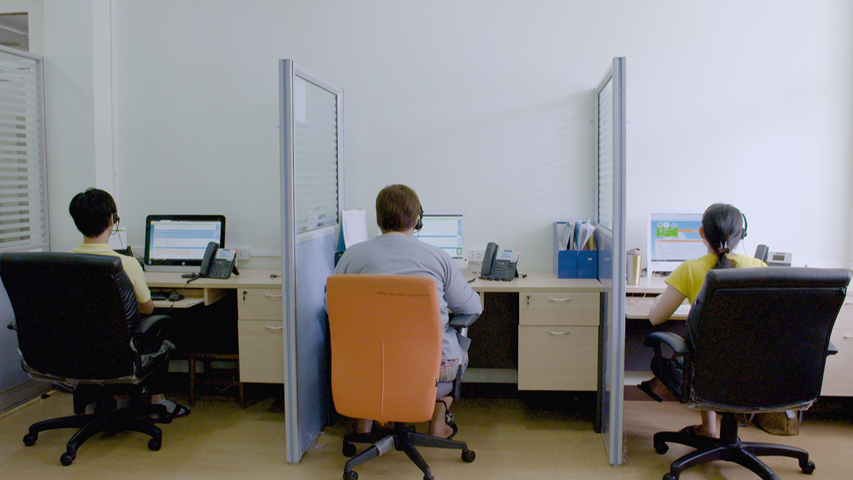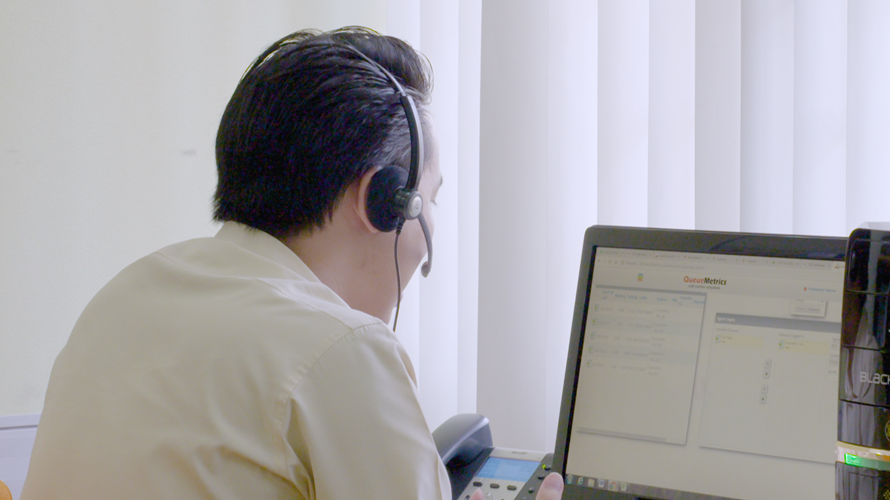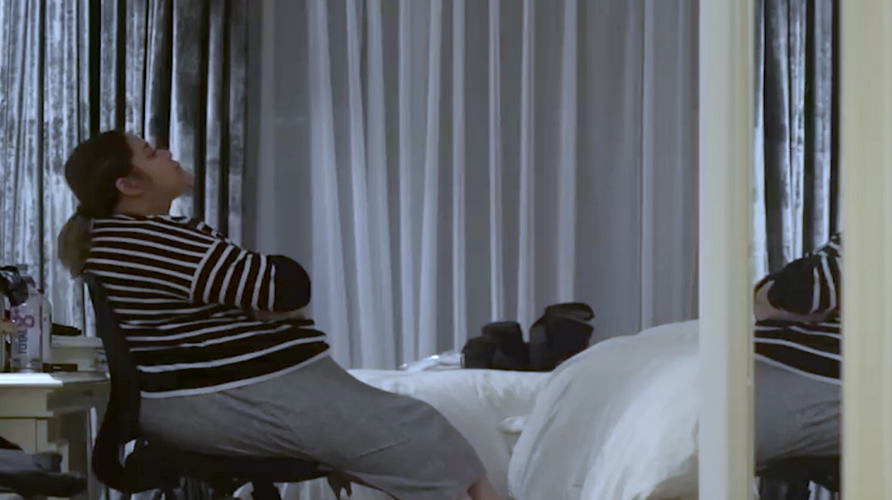

Thai Mental Health Call Center is open 24/7, offering counseling services to people experiencing suicidal tendencies and depression. /CGTN Photo
Nestled in downtown Bangkok, the Department of Mental Health call center looks like any other call centers in the world. About 10 men and and women wearing headsets sit in cubicles, chatting and typing. Bulletin boards filled with motivational messages surround them. Fluorescent lights cast a washed-out glow over the room.
When a person calls 1323 from anywhere in the country, the people here answer 24/7. The workers at the call center are either licensed clinicians or "care consultants." All have university degrees and have been extensively trained to counsel people in distress.
In the past few years, they have become busier. In one month, they receive around 9,000 calls from people who are emotionally hurt or experiencing suicidal tendencies.

Thai Mental Health Call Center has the benefit of being completely anonymous and thus it's free of the stigmas attached to mental health care in Thailand. /CGTN Photo
Listening day after day to people struggling through some of the darkest moments of their lives can take an emotional toll, but workers here believe that just having someone to talk through problems with can be enough to put someone on the path of recovery.
It's also a path that Kalyakorn "Earn" Naksompop is quite familiar with. She too has walked the path of depression since she was 19. After attempting to take her own life countless times, she finally sought help.
"Ten years is the average time that people take from the day they realize they have depression to the day they go to the doctor and that is because of the stigma and stereotypes people have about mental illness," Kalyakorn said.
She highlighted a persisting problem in Thai society, specifically the lack of understanding of depression and its effects on the human mind. Like all mental illnesses, depression can have profound effects on a person's life in various ways.

Kalyakorn "Earn" Naksompop started a charity project, Raque Forward, aimed at bringing awareness about depression and breaking the stigmas associated with properly treating it. /CGTN Photo
Another painful story was from Mena (name changed to protect the identity).
Her boyfriend of seven years projected an image of strength, perfection, health and wellness. But underneath this careful carved facade was a person in pain, a pain so powerful that he tried to take hold of his life time and time again.
After his first unsuccessful attempt, he tried again six month later.
"Before this incident, I talked about it with his family and we said that if it happens again, we have to respect his decision," said Mena.
That time soon came. All the signs were there, but no doctor, no medication and no support could bring him back from the rabbit hole of depression.
It was meticulously planned. He logged out of his social media accounts, and final letters to loved ones were placed close to where his lifeless body rested.

Suicide is the second most common cause of death in Thailand after cardiovascular diseases, and around three millions teenagers in Thailand are at the risk of slipping into depression, according to Thailand's Department of Mental Health. /CGTN Photo
Suicide is often talked about like an anomaly, an extraordinary tragedy, yet it's actually heartbreakingly common. Mena's story is all too familiar for many families across Thailand.
Nattakorn Jampathong from Thailand's Department of Mental Health said, "In one year, Thailand has around 4,000 deaths from suicide. That is around 10 cases a day. So that would mean one person dies of suicide every two hours."
In fact, six people attempt suicide every hour, an equivalent to 53,000 people a year. However, the licensed psychiatrist rate is one to 250,000 people.
What's more staggering is that around 44 percent, or three millions Thai people aged between 10 and 19, are at the risk of slipping into depression.
These heartbreaking statistics are part of a longstanding and perplexing pattern of suicide issue in Thailand. No one really knows the exact solutions because suicide deaths rarely have a singular cause.
But whatever the cause is, that is what health workers at the Department of Mental Health call center work tirelessly to ease. Whatever the case may be, it's a work that never ends because everyday someone somewhere is suffering.

Copyright © 2018 CGTN. Beijing ICP prepared NO.16065310-3
Copyright © 2018 CGTN. Beijing ICP prepared NO.16065310-3